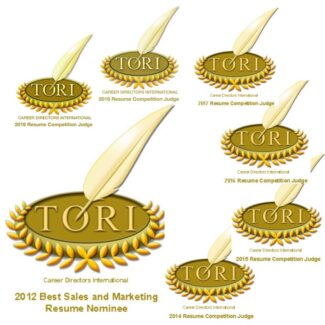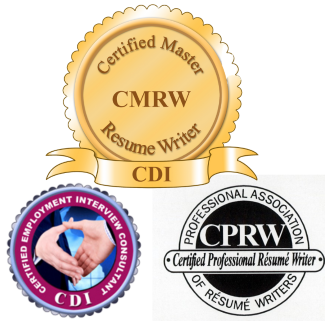As a member of the Career Collective blogging community of resume writers and career coaches, this post is one of many this month discussing HR or job search-related misconceptions. I encourage you to visit other members’ responses linked at the end of my post and follow our hashtag on Twitter: #careercollective.
__________________________
Has an executive recruiter placed you in the past?
Have you always wondered if a headhunter could help you?
Have you been frustrated trying to get results with recruiters or placement firms?
Today, I am going to share with you some insights gleaned from my past life as a New York City-based executive recruiter. This knowledge will help you make the most of recruiter relationships and determine if it can be a functional part of your job search plan. Here are four things you need to know when working with a recruiter:
- Executive recruiters don’t work for you. They are paid by the companies who hire them to fill open positions so their loyalty and their priorities are based those client companies’ needs. If your background matches a current need, you’ll get their ear, but if not, and if their plate is full, they may file your resume away for the future. Do not be offended by this. By virtue of how their business model functions, you are important piece of the puzzle, but they do not “need” to find you a job. They “need” to fill their clients’ open recs. This is what dictates how they spend their time each day.
- Not every job search candidate can work with recruiters. Let me explain myself. It’s not based on salary levels or seniority. When I recruited, I placed $40,000 candidates just as often as I placed candidates with $250,000 packages. Salary aside, your relevance for a recruiter is based on your skillset, your experience, and your job search goals. Recruiters don’t typically work with career changers or entry level professionals. They are charged by their client companies to find, pre-screen, and present particular candidate profiles. Those tend to be candidates looking to stay in their field and who are ready for their logical next step or promotion or who are open to lateral moves to a competitor company. Whether a recruiter can assist you can also vary throughout your career depending on your career goals. At one point of your career, a recruiter may be able to present you to a client company for a promotion, but a few years later, if you’re looking to transition into a different part of the business, a recruiter may not be your best source of leads – networking may be. Please remember, if a recruiter is not able to present your resume for a particular position, it does not necessarily mean you are not qualified for that role. It just means that the company isn’t willing to pay a placement fee for your background to fill that role. You can always submit your resume to the company directly. This is often the case with junior or entry-level roles.
- Information is gold for a recruiter. They key to building an effective long-term relationship with a talented recruiter is the give and take of industry information. Offer leads or refer a good recruiter to colleagues or friends who are open to new opportunities. Let a recruiter know if you hear a particular company is hiring. If you’re sent on an interview by a recruiter, share information and details with him or her afterwards – names, titles, particular interview questions that you were asked, background as to why the position is open (though good recruiters will already know this last tidbit). These details will help the recruiter with their process and will keep you in his or her good graces — where you want to be when the right opportunity for your background comes across his or her desk.
- Trust the recruiter to negotiate for you. There’s two parts to this — be honest with the recruiter in both the beginning and the end of the process. When you meet with a recruiter (either on the phone or in person) and the discussion turns to the details of your salary, for a number of reasons, please don’t misrepresent yourself or inflate the numbers. First, recruiters speak with so many people, they tend to have a strong grasp of market value so they may see straight through your elevated numbers. Not a great way to start off a relationship. Secondly, and more importantly, you can get caught in your lies later on if a company looking to hire you conducts a background check. I have seen candidates’ offers rescinded because of inconsistencies caught during background checks. It’s not fun and completely avoidable. So, at the start of your relationship. be honest and up front about your current or most recent salary and be realistic and honest about what it’s going to take to get you to accept a new position. A recruiter will go to bat for you to get as much as possible since it positively affects their commission. You are both on the same team here! More money in your pocket is more money in your recruiter’s pocket. Let them do their job and negotiate for you.
Recruiters can be a great source of interviews and do place people in new positions. It’s just important to be realistic about what they can do for you. Hopefully this inside perspective has cleared up misconceptions on how to best integrate executive recruiters into your job search plan.
The following are posts discussing the same topic from my esteemed colleagues in the Career Collective:
5 Misconceptions Entry-Level Job Seekers Make, @heatherhuhman
How “Interview Savvy” Are You?, @careersherpa
Employers Don’t “Care”, @ValueIntoWords
Misconceptions about Using Recruiters, @DebraWheatman
15 Myths and Misconceptions about Job-Hunting, @KatCareerGal
Are You Boring HR? @resumeservice
Job Search Misconceptions Put Right, @GayleHoward
Who Cares About What You Want in a Job? Only YOU!, @KCCareerCoach
How to get your resume read (sort of), @barbarasafani
Job Interviews, Chronic Illness and 3 Big Ideas, @WorkWithIllness
The secret to effective job search, @Keppie_Careers
Superstars Need Not Apply, @WalterAkana
The Jobs Under the Mistletoe, @chandlee
8 Common Sense Interview Tips @erinkennedycprw
Still no job interview? @MartinBuckland @EliteResumes
Misconceptions about the Hiring Process: Your Online Identity is a Critical Part of Getting Hired, @expatcoachmegan


[…] The 4 secrets to an effective recruiter relationship, @LaurieBerenson […]